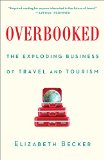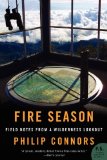Summary | Excerpt | Reviews | Beyond the book | Read-Alikes | Genres & Themes | Author Bio

A Yearlong Search for the Continent's Natural Soul
by Scott WeidensaulRetracing the journey that birding guru Roger Tory Peterson and naturalist James Fisher took in 1953 (recorded in Wild America), Return to Wild America is likely to become a classic in its own right - a sweeping survey of the natural soul of North America today.
In 1953, birding guru Roger Tory Peterson and noted British naturalist
James Fisher set out on what became a legendary journey - a one hundred day
trek over 30,000 miles around North America. They traveled from
Newfoundland to Florida, deep into the heart of Mexico, through the
Southwest, the Pacific Northwest, and into Alaska's Pribilof Islands. Two
years later, Wild America, their classic account of the trip, was
published.
On the eve of that book's fiftieth anniversary, naturalist Scott
Weidensaul retraces Peterson and Fisher's steps to tell the story of wild
America today. How has the continent's natural landscape changed over the
past fifty years? How have the wildlife, the rivers, and the rugged,
untouched terrain fared? The journey takes Weidensaul to the coastal
communities of Newfoundland, where he examines the devastating impact of
the Atlantic cod fishery's collapse on the ecosystem; to Florida, where he
charts the virtual extinction of the great wading bird colonies that
Peterson and Fisher once documented; to the Mexican tropics of Xilitla,
which have become a growing center of ecotourism since Fisher and
Peterson's exposition. And perhaps most surprising of all, Weidensaul
finds that much of what Peterson and Fisher discovered remains untouched
by the industrial developments of the last fifty years.
Poised to become a
classic in its own right, Return to Wild America is a sweeping
survey of the natural soul of North America today.
Pulitzer Prize finalist Weidensaul retraces Peterson and Fisher's journey and chronicles the changes, both good and bad, in this in depth account. Amongst the bad news is the spread of invasive species, chemical pollution, global warming, species decline, over-logging and urban sprawl (for example in 15 years Pennsylvania has increased its "urban footprint" by 47% while its population has increased by only 2.5%)...continued
Full Review
 (800 words)
(800 words)
(Reviewed by BookBrowse Review Team).
About the author: Born in 1959, Scott Weidensaul has lived almost all of his life among the long ridges and endless valleys of eastern Pennsylvania, in the heart of the central Appalachians, a landscape that has defined much of his work.
He has written more than two dozen books on natural history, including Living on the Wind: Across the Hemisphere with Migratory Birds (1999), which was one of three finalists for the Pulitzer Prize for general nonfiction. He lives in the Pennsylvania Appalachians.
Some key events in the USA environmental movement:

If you liked Return to Wild America, try these:

by Elizabeth Becker
Published 2016
Elizabeth Becker investigates global travel industry practices in an eye-opening examination of this $6.5 trillion phenomenon.

by Philip Connors
Published 2012
A decade ago Philip Connors left work as an editor at the Wall Street Journal and talked his way into a job as one of the last fire lookouts in America. Fire Season is Connors's remarkable reflection on work, our place in the wild, and the charms of solitude.
Idealism increases in direct proportion to one's distance from the problem.
Click Here to find out who said this, as well as discovering other famous literary quotes!